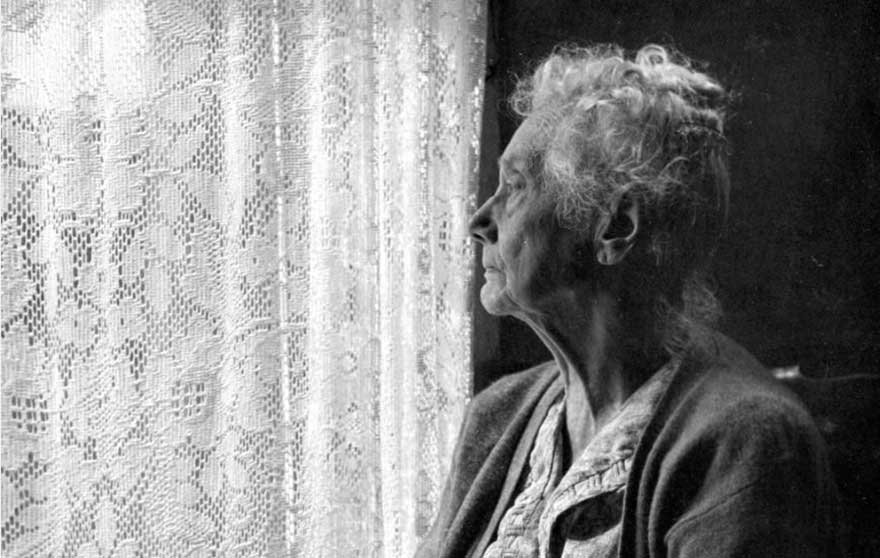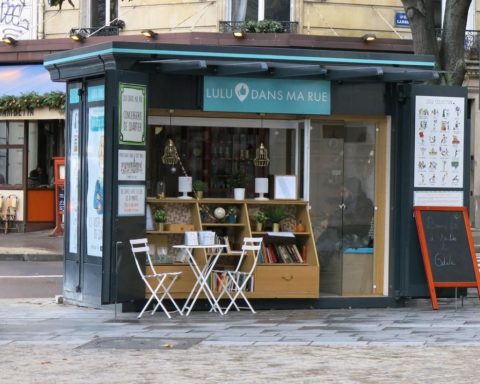La Poste launched the "Look after my parents" service on 22 May 2017 with a great deal of advertising. It offers one or more visits per week by the postman to the homes of elderly people, followed by a report on the visit via a smartphone application. A paid service to position itself on the market of the aging population, while public policies are slow to respond to this demographic challenge.
« Tou realize that they used to keep the parents at home... we don't make children to take care of us. "This is how the commercial for Looking After My Parents begins. An elderly lady, alone in an apartment where time seems to stand still. After considering old age, the need for independence and home care, the 70-year-old woman prepares and offers a cup of coffee to a young postman. Advertising falls on the introductory offer. A monthly package including a weekly visit by the postman and tele-assistance provided by Europ Assistance for €19.90 per month for one year. This is the new service sold by La Poste.
A service not falling within the scope of medical or care services
With tele-assistance and postman's visits, the - still - public company aims to encourage an aging parent to stay at home as long as possible and to break his isolation. The subscriber of the offer receives a report at each home visit thanks to a mobile application. A response to the ageing of the population and the fear of a remake of the 2003 heat wave hecatomb, for this offer proposed just before the summer?
The words used by La Poste to promote its service may leave him wondering. Watch, home care, visits, breaking isolation, reassurance, well-being... all the vocabulary used refers to the notion of taking care. The fact that this service is provided by a public company reinforces this perception for users. However, La Poste group defends itself from any ambiguity: "The postman is there to spend a moment of conviviality, discussion and exchange. We are not at all in the medical field. »
Merchandising the social relationship
In addition to tele-assistance, what is sold is a short human presence when the postman passes by. The entry-level offer is €39.90 per month (€19.90 until 31 December 2017) for one visit per week. "The price of the service corresponds to the market price of remote assistance", ensures the communication service of La Poste. Companies providing alarm boxes and 24/7 hotline assistance actually offer offers around €30. However, additional calls from the post office clerk, beyond the weekly call, are charged at a high rate. A second call costs €59.90 (€29.90 with the introductory offer). For four or six visits per week the promotional offer disappears and the bill rises to €99.90 and €139.90.
The postman does not receive additional remuneration for a service that is integrated into his tour, without time compensation. The price seems high for a few minutes per visit. "Will the person who needs it be the person who subscribes? "asks Gilles Berrut, a member of the board of the French Society of Geriatrics and Gerontology. This is the disadvantage "of the individual pay model". For the doctor, "the installation of a box does not allow for home care, even when combined with a visit from the postman". However, the service has the virtue in these eyes of creating a dynamic.
In his view, the territorial network of support for the elderly is insufficient. Within a decade, France will suffer a demographic shock. At that time, in 2027, "one third of the population will be over 65". Public policies have not followed suit, leaving the field open to the private sector. Gilles Berrut sees La Poste as an important player for the future and analyses the service offered today by the public operator as a first phase with many imperfections. A benevolence that is not shared by Internet users on social networks, where Poste-bashing has been raging since the launch of "Watching over my parents". Perhaps one of the reasons for the poor success of the new service. La Poste had only registered a thousand contracts as of July 11, two-thirds of which were for a single visit per week.
Unconvincing factors
What do the factors responsible for providing this service think? A contract "Veiller sur mes parents" was signed on Mathieu, Alice and Marion's tours (first names have been changed) at the beginning of the summer. "The publicity is totally false," exclaims Marion. The image, in the promotional campaign, of the postman sitting down, drinking coffee and taking the time to talk doesn't correspond to his reality.
"I ask him how it's going. If she tells me she's doing well, I check "nothing to report" on the application, get her to sign it and continue the tour". No coffee, no time to chat. The operation lasts less than five minutes. The numerous tour cancellations and reorganizations in the distribution offices have led to a lot of downtime. After four or five planing moves in 10 years, agents no longer have any room for manoeuvre. Alice, an invoice for five years, was not intended for this job. She started on a fixed-term contract, and did not imagine herself staying. The discovery of contact with the public on her tour, combined with the feeling of being useful, appealed to her. She stayed. Today, making the human relationship pay makes her uncomfortable. Her colleagues remind her that they used to do this for free.
A do-it-yourself start up
For Marion, this service "serves above all to reassure people. The elderly person she visits has recently had a fall. Her worried daughter has signed a contract for a daily visit. "If something happens, I don't want to be responsible," she worries. The management of La Poste says that the company is solely responsible. But this has not been communicated to Marion. Despite training, many practical questions remain unanswered.
Alice only visits once a week. A training course, established in collaboration with the Gérontopôle des Pays de la Loire, was given to her during the winter, in the form of e-learning. She spent thirty minutes after her tour alone in front of a computer to learn the right behaviour with the elderly. The agents thus receive some digital advice: talking in front of the person, keeping a distance if the person is too much in demand, not shouting... All in the form of sketches. A roadmap considered a little thin by mail delivery agents, to deal with all the situations that may arise with an ageing population. The authorization was given at the last moment by La Poste at the end of June. It lasted five minutes and focused mainly on the technical mastery of the mobile application.
The first problem encountered is that of having a service provided regularly and carried out by the same agent so as not to destabilize the elderly. Especially in the summer period with departures on leave. To perform on Mathieu's tour, his chiefs have provided for a maximum of two substitutes, nominally defined. He has already been replaced twice in 15 days when he was on RTT, but by two different and unforeseen factors. Same problem on Marion's tour. "When I told the lady I was going on leave, she wasn't happy. My replacement was not well received. "The actual organization of the service is likely to be complicated when Marion, Alice and Mathieu's distribution office is staffed by about 40 % of fixed-term and temporary postmen.
Stéphane Ortega
This article was first published by Bastamag.
Header image: Chalmers Butterfield












